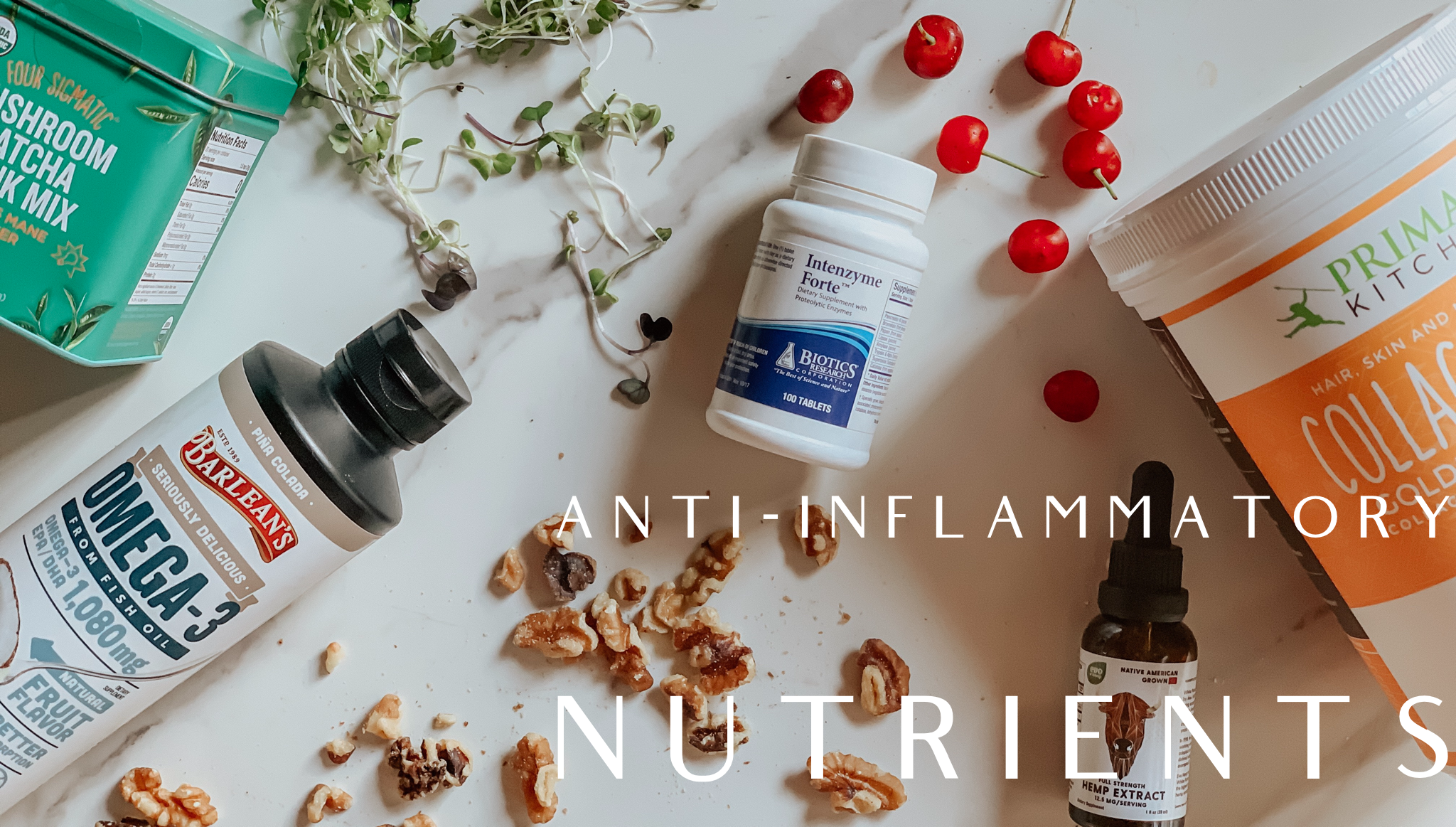
Anti Inflammatory nutrients:
- Antioxidants ( some top antioxidant foods include: goji berries, blueberries, dark chocolate, pecans, artichoke, elderberries, cranberries, blackberries, matcha and cilantro.)
- Some of my favorites:
- ORAC ( oxygen radical absorbency capacity) is a test to show the TAC( total antioxidant capacity)
- A good way to remember if a food has a high amount of antioxidants is its vibrant color and smell/taste.
- Vitamins/ Minerals : we need these for a lot of functions to happen properly in the body.
- The best vitamins/minerals for the job are: vitamins A,Bs,C,D,E,&K and Coenzyme Q10, Glutathione, and Magnesium.
- Check out an earlier post of mine with great vitamin/mineral options by clicking this link How To Choose the Right Multivitamin
- Essential Fatty Acids: we want to get most of these through omega
- 3s due to them being precursors of DHA and EPA and they can reduce the production of molecules and substances that increase inflammation.
- Food Sources: walnuts, flax seed, chia seed, fatty fish, almonds, hemp, leafy greens, olive oil, eggs, etc.
- My favorites:
- Nutrients:
- Bromelain: sulfur containing enzyme in pineapple that blocks the pro-inflammatory prostaglandin and is most effective for respiratory issues like bronchitis and sinusitis
- Carotenoids: these are most helpful for inflammation in the skin due to them being depleted as a result of it.
- Flavonoids: these directly counter inflammation by blocking synthesis of messenger molecules that promote inflammation.
- Magnesium salicylate ( what is used in NSAIDS)
- Amino Acids:
- glutamine: it is the preferred fuel of cells lining the small intestine, and so it is already widely used for intestinal support outside of its anti-inflammatory properties. It will lower the levels of messaging of inflammation.
- My favorite Products for Glutamine:
- lysine: It can be associated with lowering inflammation when it is added to other molecules. Like when it is added onto aspirin it can improve the effectiveness.
- My favorites for L-Lysine:
- Herbs:
- aloe vera: mostly used topically by the gel that is inside the plant for treating burns. It contains both fatty acids (GLA) and (ETA)
- echinacea: a root that has been used to treat: fevers, snake & insect bites, and many skin problems. Along with those it has been used for things like cold and flue prevention, treatment of infections, and purification of blood and lymph.
- garlic: has a multitude of anti inflammatory properties but has been linked in the help of inflammatory bowel disease.
- ginger: has been used in studies for osteoarthritis and rheumatism to reduce swelling and joint pain.
- licorice: the root is known as the great detoxifier.
- turmeric: curcumin in it lowers the level of messaging molecules that trigger inflammation.
- Hemp Oil: hemp has been known to help calm down inflammatory response in the body.

